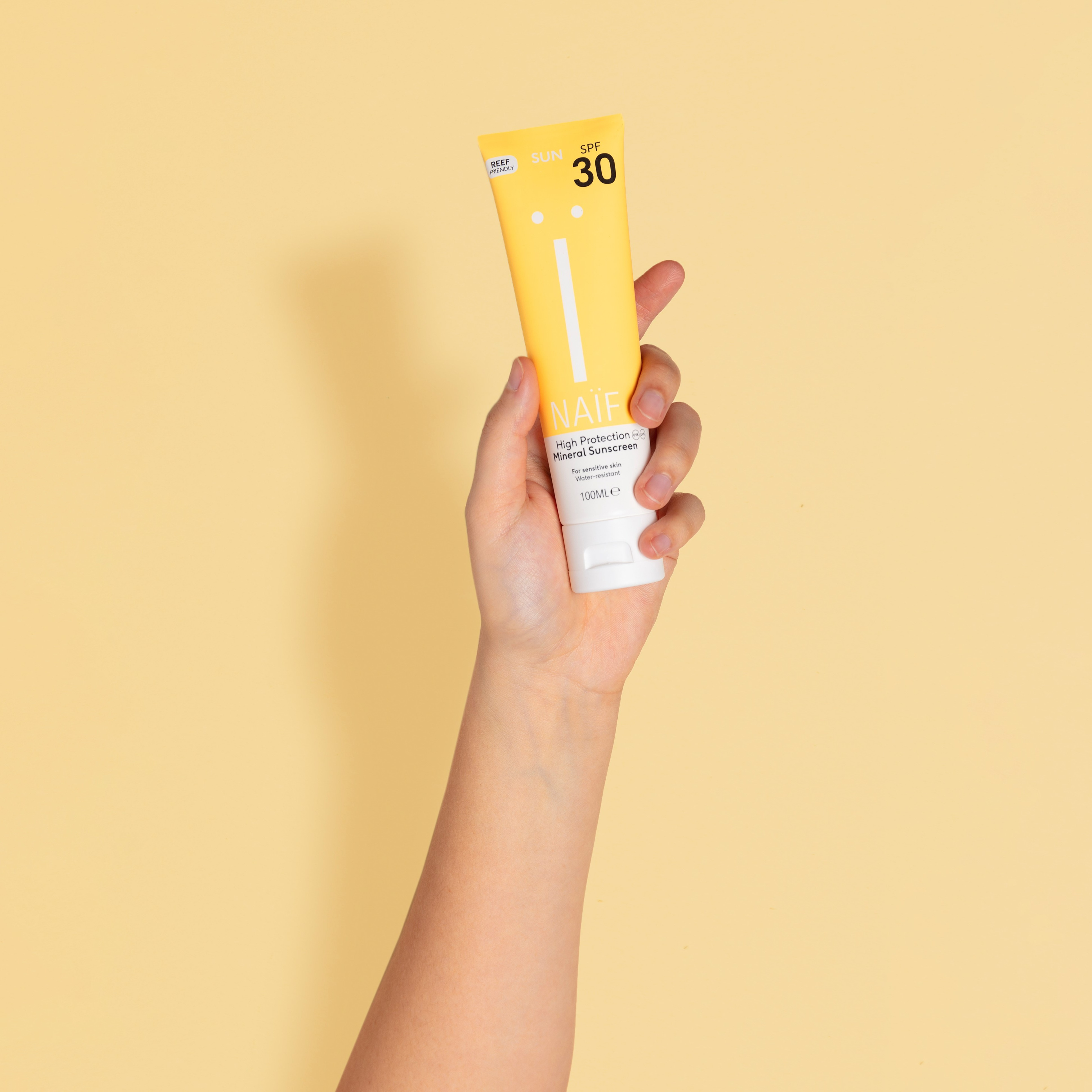Sun protection
How can we guarantee the SPF in our sunscreen?
15 March 2024

When you think about sunscreen, SPF (Sun Protection Factor) is probably on of the first things that come to mind. Protecting your skin against harmful UV radiation is very important, so we want to explain to you how we can guarantee an effective SPF in our sun care products. Let's get into it!
Mineral sunscreen
First things first; we made the conscious choice to create a mineral sunscreen. Although mineral sunscreen is pretty common in other countries, the Dutch market still offers mostly traditional sunscreen with non-mineral filters (better known as chemical). Mineral sunscreen with a zinc oxide based filter like ours lays a physical barrier on top of the skin that reflects harmful UV radiation. Non-mineral filters penetrate the skin and then cause a chemical reaction where the UV beams are absorbed instead. You can find more information about UV filters here. Because these filters penetrate the skin there is a bigger chance on skin irritation and it takes longer for the sunscreen to do its job. There are also some ingredients in non-mineral filters that can cause harm to coral reefs, and we don't want that, do we?
Zinc and SPF
Zinc oxide based sunscreen has another perk. The amount of added zinc is a direct reflection on its protective properties. To reach an SPF of 30, a product needs to contain 21% zinc oxide for example. Just to be sure we even try to add a little more zinc oxide to our products. Our 2024 formula additionally also contains not one, but two extra boosters. Good protection guaranteed!
Labtesten
And then what? Although this percentage is a good start, we of course also test our formula extensively before we start production. We do this at an independent laboratory, Helioscience, specialized in mineral sunscreen.
In vitro and in vivo
There are to different ways in which sunscreen can be tested: in vitro and in vivo. All our formulas are first tested in vitro. This means we look at the product in a more technical way. For traditional sunscreen they look at the heat that is released, because non-mineral UV filters absorb the sun rays and convert them to heat. But that not how mineral sunscreen works. A zinc oxide based UV filter adds a protective layer on top of the skin that reflects UV radiation in stead of absorbing it. No heat released. That's why it's important to test mineral sunscreen differently than non-mineral sunscreen. Helioscience knows exactly how to do this!
Only when the in vitro tests are positive we start with in vivo testing. These tests are done on actual skin, of real people that is! A small portion of the skin of 10-20 people is exposed to controlled sun beams. The reaction of the skin is measured to see how effective the SPF is. They check how long it takes for the skin to get red. When it takes 30 times longer than usual it means the product has SPF 30. In vivo tests are always done on people with different kinds of skin types and skin conditions.
Production
If you want to sell products, they need to meet the strict regulations of the Nederlandse Cosmetica Vereniging (Dutch Cosmetic Association). Only when we know for sure our product meet their guidelines we start producing our sunscreen. Apart from strict laws, we also have terms and conditions that are important for us as a brand: would we use these products for our own kids? If the answer is yes, we start production. Are there any doubts? We decide against producing the product. This way we ensure that we only launch products that we are really proud of.
Transparancy
At Naïf we want to change the personal care industry, because let's be honest, we can and have to do better. We believe change starts with honesty and transparancy. That's why we decided to share the results of ALL our sunscreen tests. And remember, these are done at a independent laboratory. We think it's important that you know what you're putting onto your skin!